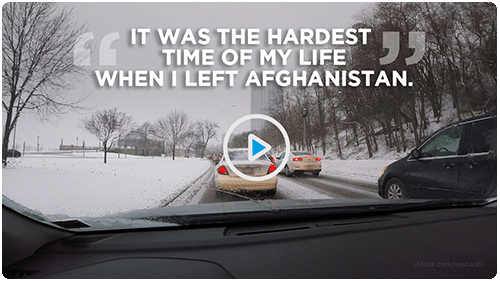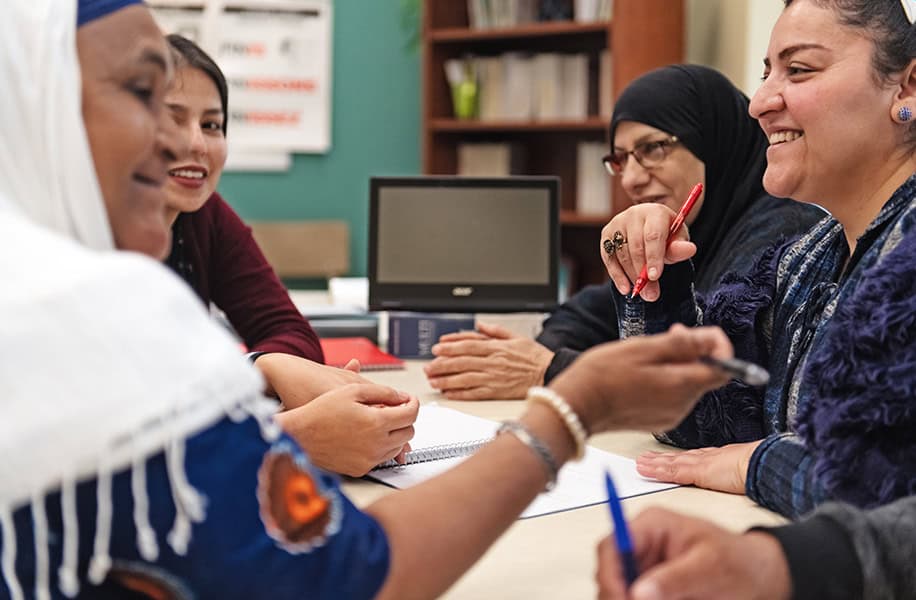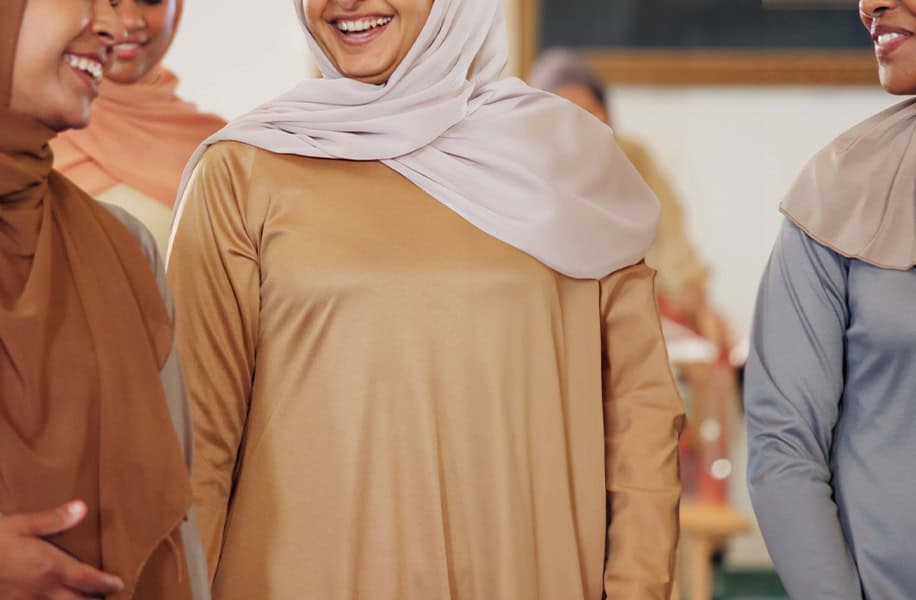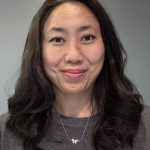|
Getting your Trinity Audio player ready...
|
When Farah Asghari arrived in Appleton, Wisconsin, the snow was thick, the air bitterly cold, a stark contrast from her homeland of Herat, Afghanistan. But the biggest shock wasn’t the weather. It was the weight of uncertainty. No family nearby. No familiarity. No sense of what would come next.
Yet, amid this disorienting transition, Farah found something remarkable — welcome. The World Relief team was there to provide guidance, support and resources, helping them find a home, navigate transportation, enroll in Medicaid and apply for basic benefits, just to name a few. In a moment of profound upheaval, Farah experienced the power of community and connection.
Today, she’s no longer just a recipient of that welcome. She’s a bearer of it. Employed by World Relief in the very city where she was resettled, Farah supports other refugee families walking the same path she once did and reflects a deeper truth: resettlement doesn’t end at 90 days. In fact, that’s just the beginning.

90-Days Isn’t Enough
The U.S. Refugee Reception and Placement (R&P) program offers critical support in a refugee’s first 90 days, securing housing, enrolling children in school and accessing health care. But the assumption that families are fully self-sufficient after three months is far from reality.
Farah knows this firsthand, even if she was able to adapt more quickly than some might. “For one year, I was depressed. I missed my family, my country,” she shared. “You just imagine someone who doesn’t speak the language, doesn’t even feel safe here yet. How could 90 days possibly be enough?”
The needs vary among the Afghan refugees with whom Farah works. There are those who are preliterate, those unfamiliar with how to navigate public transportation, or even how to respond to a letter from their child’s school. It takes time — sometimes years — to learn how to navigate an entirely new system.

That’s why World Relief’s long-term services are so vital.
Thriving Takes Time and Community
If the first three months are about surviving, the weeks, months and years that follow are integral to the ability of refugees to thrive in their new home. They’ve just begun the journey toward belonging.
One Afghan refugee couple Farah worked with could neither read nor write in their native Dari language. The wife faced multiple health challenges. The husband, a former soldier, battled trauma and depression. “I couldn’t sleep at night because I kept thinking about them,” Farah said. “They wouldn’t know if a letter was an eviction notice or junk mail. It was heartbreaking.”
Thanks to long-term case management and employment support, that husband is now employed and able to provide for his family. But like many, they still rely on wraparound services — the kind World Relief provides for years, not just weeks.
Unfortunately, some of World Relief’s programs that were critical to many refugees had to be discontinued due to the government’s decision to terminate its reception and placement agreement. Many families Farah serves benefit from individualized support lasting well beyond 90 days — sometimes up to five years.
Your Footprints on the Path
That’s where you, the church, come in. With your help, World Relief can continue to offer a robust selection of key services that equip and empower newly-arrived refugees with the tools they need, such as:
- Adult education programs that equip individuals with the English language through ESL tutoring that strengthens proficiency and cultural skills for successful work, life and community integration.
- Church and community engagement that fosters belonging, provides psychosocial support and maximizes community assets.
- Fast-track employment programs that help individuals secure stable jobs quickly, addressing labor market shortages.
- Job upskilling initiatives that open doors to higher-wage, meaningful employment and meet industry demands for specialized skills.
- Employment mentorship programs that foster professional development, network and career exploration with trusted career industry mentors.
- Immigration Legal Services that support a pathway to citizenship.
To refugees, these are lifelines that make the difference between surviving and thriving.
The Road Home
Farah’s story is not just one of survival. It is one of transformation. The initial support she received from World Relief equipped her with resources and empowered her to start fresh and rebuild her life. Farah serves not only as a Group Program Specialist but also as a bridge.
Her WhatsApp group of Afghan refugee women has become a lifeline — a place where job leads are shared, cultural questions are answered and women who were once isolated find community and purpose.

The pathway to flourishing doesn’t stop with her as she’s helped others do the same. You can lay more bricks towards a thriving future for the thousands of refugees that are still striving to rebuild and belong in their new nation.
Don’t stop at “welcome”. Stay and take the next step.
Because when we do, refugees don’t just get resettled, they flourish. And in that flourishing, we, as a community, are made stronger.
How You Can Help
With the U.S. Reception and Placement refugee program suspended and our agreement to resettle refugees terminated, those who are already in the U.S. still need so much. This first 90 days is just the beginning and our vision extends far beyond the initial resettlement — we’ve always been here for the long haul.
Farah’s story reminds us that welcome is not a one-time act — it’s a journey. And no one should have to walk it alone.
When you become a monthly donor, you can walk alongside refugees as they go deeper in their journey. Your consistent support equips local staff and volunteers to provide ongoing services for families to move from rebuilding to belonging and flourishing.
Help refugees get further down the road to belonging.

Kristine Brackman is the Email Content Specialist at World Relief, where she combines her love for storytelling and strategy to help connect people to life-changing work around the globe. With a lifelong career in the humanitarian sector and firsthand experience in the field, she brings a grounded, authentic perspective to every message she crafts. A Canadian-American with Filipino roots, Kristine is passionate about the beauty of cultural diversity and the stories that shape us.

